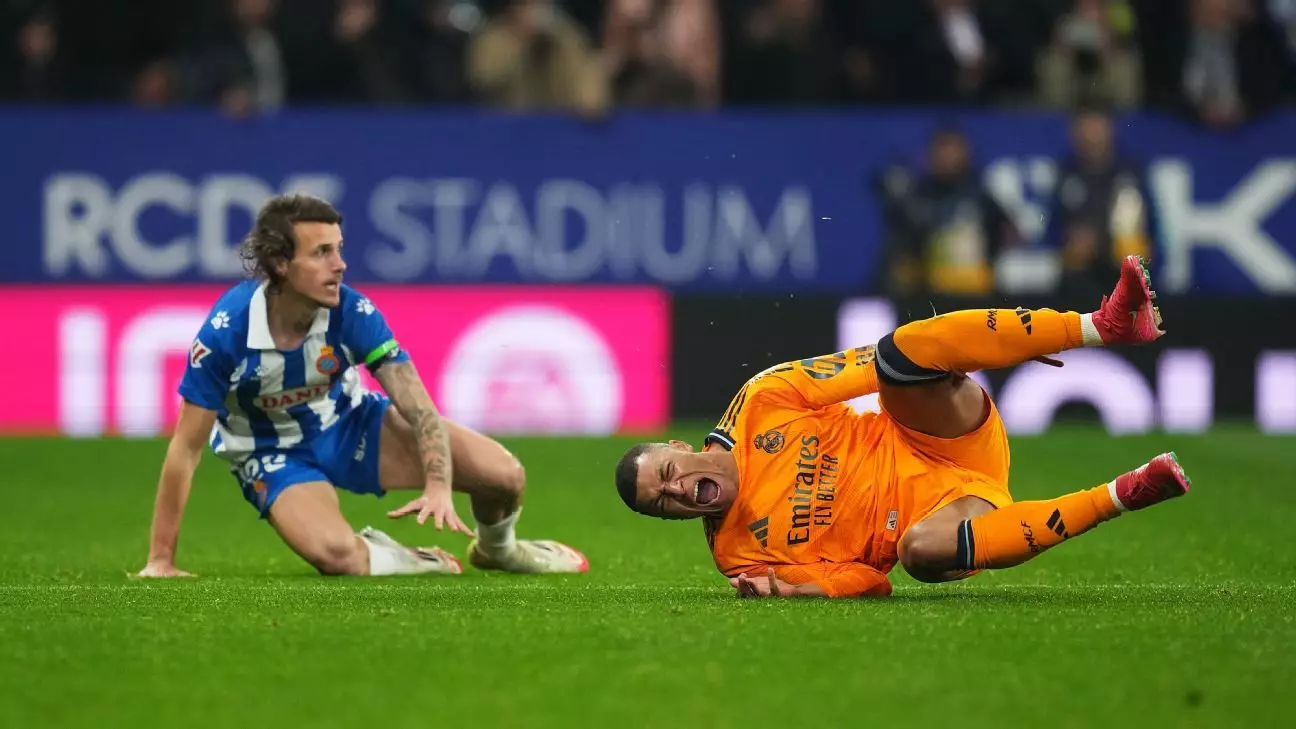Recent events in the Spanish LaLiga have ignited a heated debate about the integrity of officiating, especially in high-stakes matches. The controversy was set ablaze following Real Madrid’s stern public condemnation of the current refereeing system. The club, reeling from a narrow 1-0 defeat against Espanyol, unleashed a formal complaint directed at the Spanish Football Federation (RFEF) citing instances of perceived bias and incompetence. The club’s discontent was deeply rooted in a series of decisions during the match, particularly regarding a foul that led to Espanyol’s lone goal. Real Madrid’s management insisted that these decisions were reflective of a system that they believe has become “completely discredited.”
At the core of Real Madrid’s grievance is the performance of referee Alejandro Muñiz Ruiz, whose decisions they believe strayed well beyond the bounds of acceptable officiating. Notably, a critical moment arose when defender Carlos Romero committed a foul against star player Kylian Mbappé, yet no red card was issued — a decision that hinged upon the interpretation of rules that Madrid argues was excessively lenient. Romero, controversially allowed to play on, later seized the opportunity to score, sealing Madrid’s fate. The club’s outrage compelled them to request transparency via audio recordings of the communications between on-field officials and the Video Assistant Referee (VAR), underscoring their demand for accountability.
Real Madrid’s accusations didn’t just stop at a simple critique; the club alleged that the officiating was not only flawed but manipulated. Their official letter painted a distressing picture of the match as being an example of systematic issues within Spain’s refereeing framework. The league’s president, Javier Tebas, responded with pointed critiques of his own, accusing Madrid of constructing a narrative of victimhood. This narrative, according to Tebas, showcased a club that had ostensibly “lost their minds” over refereeing standards.
In retaliation, LaLiga prepared to file a counter-complaint against Real Madrid, presenting an unyielding stance to defend the integrity of its match officials. This tit-for-tat exchange illustrates a growing rift in Spanish football, where larger issues of trust and professional integrity are now on full display.
The consequences of this feud extend far beyond the confines of just one match. As clubs argue and the integrity of the refereeing system is scrutinized, Spain’s footballing reputation is at stake. With both Real Madrid and LaLiga embroiled in accusations and counterclaims, the need for a comprehensive review of officiating practices looms large. The future of Spanish football may well hinge on how these disputes are resolved, particularly the calls for transparency and accountability.
In many ways, this scandal might be viewed as a watershed moment—a pressing impetus for reform that could redefine the landscape of officiating not just in Spain but potentially influence leagues around the world. The clashes of egos, power, and accountability in this saga signify a pivotal chapter in LaLiga’s storied history, one that could lead to significant transformations in how the beautiful game is managed.

Leave a Reply